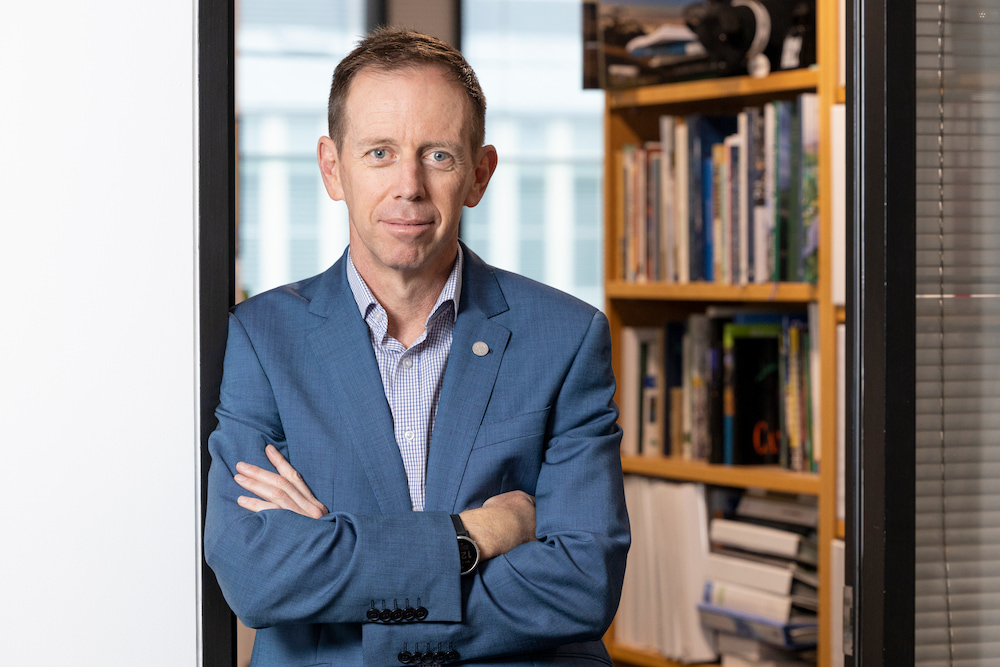Shane Rattenbury MLA is leader of the ACT Greens, and Minister for Consumer Affairs; Water, Energy and Emissions Reduction; and Gaming. In this opinion piece, he discusses the 2023 United Nations Climate Change Conference of the Parties of the UNFCCC (COP28), the 28th United Nations Climate Change conference, which finished this week.
Some are calling it the beginning of the end of the fossil fuel era, others a death sentence for small island nations. The outcomes of the global climate summit in Dubai, known as COP28, have been fraught, with difficult negotiations over wording on phasing out fossil fuels.
The final agreed text calls on countries (taking into account national circumstances) to contribute to “transitioning away from fossil fuels in energy systems, in a just, orderly and equitable manner, accelerating action in this critical decade, so as to achieve net zero by 2050 in keeping with the science”.
Many, particularly small island states, have criticised the text for not going far enough in requiring a phase-out of fossil fuels. The loose wording creates loopholes that leave a lot of room for countries to continue with business as usual.
As we have seen to date, global agreements like the Paris Agreement are notoriously difficult to enforce, and countries face few repercussions if they do not meet their commitments or set weak targets. We saw this play out in Australia over the years of the Coalition Government, as we were criticised by the global community each year for being a climate laggard, but faced no practical consequences as our nation continued to pump out fossil fuels and use accounting tricks to meet national emissions targets.
And now, while it’s a vast improvement to see Australia taking genuine action to reduce emissions and decarbonise our energy system, there are enough loopholes in these agreements to enable us to talk about climate action but continue to approve new coal and gas projects and export fossil fuels to the world. Australia’s Labor Government will be simultaneously fuelling climate havoc and sending money to vulnerable nations to repair climate damage. The insanity, hypocrisy, and economic inefficiency of this is beyond belief. The five new coal mines and 116 new fossil fuel projects in the pipeline in Australia will drag the world backward. They simply cannot go ahead if we are to keep warming to below 1.5 degrees.
We know the climate crisis is caused by mining and burning fossil fuels. We know we have no time to waste in phasing out their use. So it is disappointing, while not surprising, that the negotiations have failed to deliver the level of ambition that we need.
As with all global negotiations, the agreed outcome is a balancing act, with small island states rightly arguing that failing to phase out fossil fuels would be a death sentence for their nations, and fossil fuel dependent countries like Saudi Arabia arguing for no mention at all of fossil fuels in the agreement. With such wildly opposing views, with the summit attended by a vast number of fossil fuel lobbyists, and with this summit chaired by oil company executive Sultan al-Jaber (who went so far as to claim that there is no scientific evidence that phasing out fossil fuels will limit climate change, before walking back his comments), there is little wonder that the final text from COP28 lacks the ambition required.
Having attended a number of previous COPs, I can nonetheless attest to just how far we’ve come. Having fossil fuels mentioned in the agreement is a positive step forward after decades of COP agreements failing to mention them at all. This is a very low bar, and while these steps are far too small, each inch of progress gets us a little closer to where we need to be. The consensus-based decision-making process of these conferences requires getting every country on the same page, meaning the final outcome is significantly less ambitious than many people, countries, climate scientists, and organisations would like.
Climate anxiety is real. Outcomes as underwhelming as this can make us feel helpless. But I do not feel hopeless.
Simon Stiell, Executive Secretary of the United Nations Framework Convention on Climate Change (UNFCCC), acknowledged in his closing remarks that “loopholes leave us vulnerable to fossil fuel vested interests which could crush our ability to protect people everywhere against rising climate impacts.” He went on to highlight that transparency and people holding their governments to account will be vital for closing these loopholes and continuing to ramp up ambition.
I wholeheartedly agree with these comments. For a range of reasons, this is as far as the global agreement has been able to go right now, and we need to take it and run with it, as far and as fast as we can. People everywhere need to call for fossil fuel phase-outs, they need to hold their governments to account on emissions targets, and they need to keep up the pressure on wealthy nations to fund countries that need assistance to decarbonise and to recover from climate impacts.
These global agreements are important, but even more important is the power of people on the ground to shape their communities and to demand urgent climate action from their governments. Pressure works. We all need to step up, step out, and demand action from everyone who has capacity to take it.



